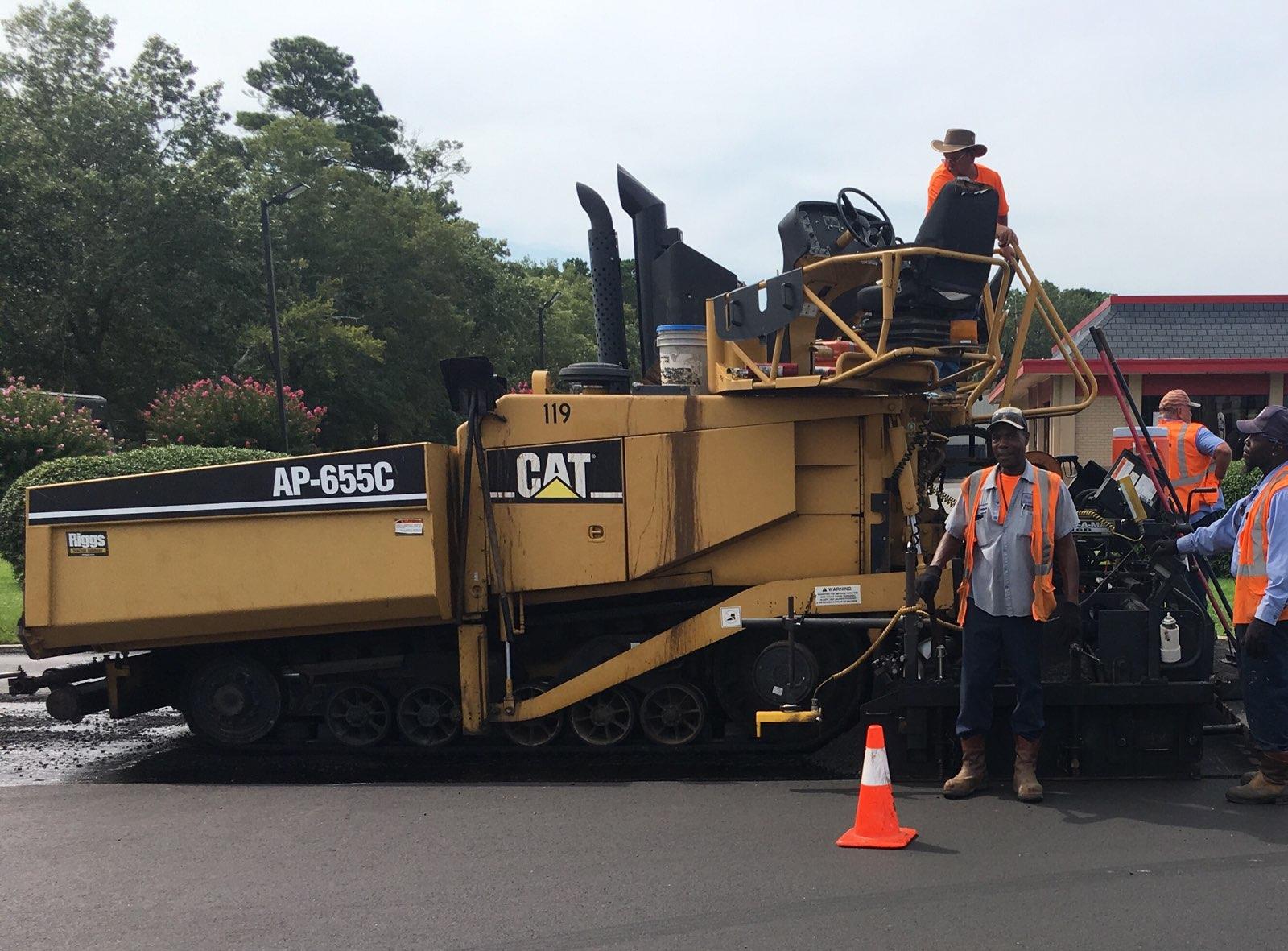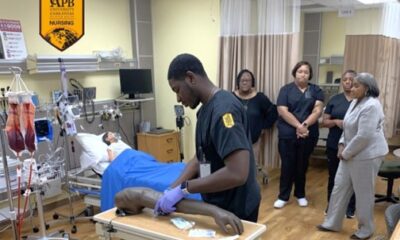Featured
The Road to American Economic Success Is Still Paved by the Work of Underpaid Black America

With a renewed conversation about reparations, Labor Day offers Black Americans an opportunity to review the role work has played in the collective identity of the entire race. The recent commemorative events related to the 400-year history of Africans and their descendants in what became the United States provides the beginning of the story.
The author of Unveiled: The Twenty and Odd, K. I. Knight says, “The stories of the Africans are amazing. What they went through, what they saw, how they saved the colony. It’s one of the most important stories ever told…I don’t believe America would have existed, certainly Virginia wouldn’t have been a colony. It was a stroke of luck for America that they arrived.”
The Founder of Project 1619 also says the survival of Virginia is tied to the work of the Africans who were prisoners of war traded by a Spanish crew for supplies once they reached the English Colonies. The Africans were accustomed to the temperatures they experienced in Virginia which made them valuable to farmers.
“The Africans coming out of Africa were herders, farmers,” explains Calvin Pearson. “They knew how to raise cattle, chicken and pigs. They were already growing tobacco and vegetables in Africa.”
They were not slaves. In fact, slavery was illegal in Virginia. But, over time, colonists recognized the importance of their labor and passed laws to exploit their skills.
Until 1865 the enslaved labored for free, toiling on plantations and in sugar cane fields and on tobacco farms building the world’s most robust economy. Their sweat equity helped propel American businesses to the forefront of a global economy. The idea of “paying” the descendants of the enslaved is gaining credibility through the efforts of lawmakers who held the first Congressional hearing on reparations and Democratic presidential candidate Marianne Williamson who traces the vast wealth gap between whites and blacks to slavery.
“We need to recognize that when it comes to the economic gap between blacks and whites in America it does come from a great injustice that has never been dealt with,” Williamson said during the Democratic debate in Detroit in July. “That great injustice has had to do with the fact that there was 250 years of slavery followed by another 100 years of domestic terrorism.”
Blacks were largely sharecroppers after the government failed to make good on Field Order No. 15 which was a post-Civil War promise to provide newly freed slaves with “40 acres and a mule.” Instead, most of the freedmen wound up working once again for whites who owned the land which was worked by Blacks. They “shared” the profits, often taking advantage of the arrangement with dubious accounting and receipt of unjust percentages.
In 1919 sharecroppers in Elaine, Arkansas met to discuss joining a union to address the inequities they faced, and they also hired an attorney. On the night of the September 30th meeting at a church, one of the white men gathered outside fired into the building. Someone shot back from inside and a white man was killed. A few days later a white mob roamed the area and murdered at least 200 men, women, and children. Five whites were killed in the mayhem, and charges were brought against 12 Black men. Through the efforts of the NAACP and its legal team, in 1923 the United States Supreme Court ruled that the men had not received due process guaranteed by the 14th Amendment. No one was ever charged with the killings of the innocent.
“It’s important to note that these men and women risked their livelihoods and their lives by challenging the racial status quo and organizing in the Jim Crow South to demand fair wages for their labor and their crops,” says History professor, Dr. Cherisse Jones-Branch. “They were in essence, engaging in rural Civil Rights activism.”
Joining unions predated the Civil War. The National Archives documents a strike by a Black caulker’s union at the Washington Navy Yard in 1835. Unions were formed along racial lines and persisted in that manner which led Black workers to form their own organizations during and after Reconstruction.
Throughout Jim Crow Black Americans faced a shortage of job opportunities and feared reprisals for unionizing to fight injustice. The military provided an employment avenue for men while many women worked as domestics. The Civil Rights Act of 1964 offered legal recourse for employment discrimination. Yet, there are still disparities in hiring practices and compensation in Corporate America, on assembly lines, and elsewhere.
According to figures released by the Census Bureau in 2018, white men are still paid more than other groups. A report by the Economic Policy Institute pointed out that “since 2000 wages have been generally stagnant, and large gaps race and gender, despite an expanding and increasingly productive economy.” The current White House touts the lowest unemployment since December 1969 at 3.6 percent but it is still almost double for Black Americans at 6.9 percent.
For a race of people who came ashore and immediately began working, worked without pay for generations and still works for far less than deserved, the Labor Day holiday offers a day off and time to reflect on a collective work ethic that many believe deserves more recognition and demands the appropriate financial rewards.

-

 Featured12 months ago
Featured12 months agoArkansas Sheriff Who Approved Netflix Series Says He Stayed ‘In His Lane’
-

 HBCUS12 months ago
HBCUS12 months agoSenator Boozman Delivers $15 Million to Construct New UAPB Nursing Building
-

 News12 months ago
News12 months agoMillions In the Path of The Total Solar Eclipse Witnessed Highly Anticipated Celestial Display
-

 Featured9 months ago
Featured9 months agoCalifornia Is the First State to Create A Public Alert for Missing Black Youth
-

 Featured9 months ago
Featured9 months agoAfrican American Leaders Stay the Course Amid Calls for President Biden To Bow Out of Race
-

 Featured9 months ago
Featured9 months agoThe Debate Fallout Lands on Both Candidates









